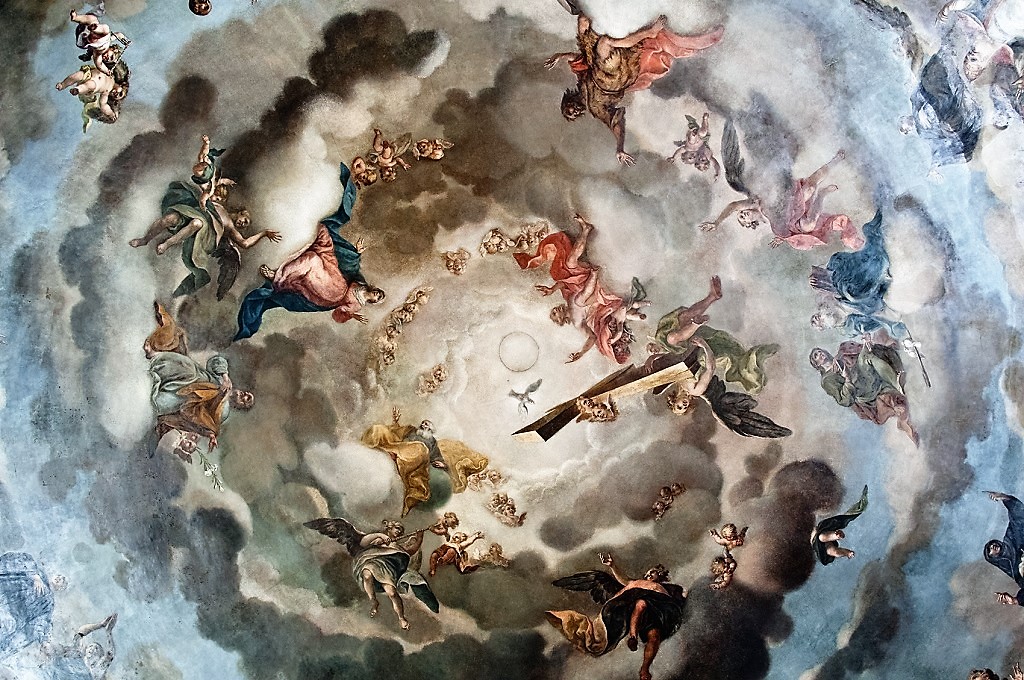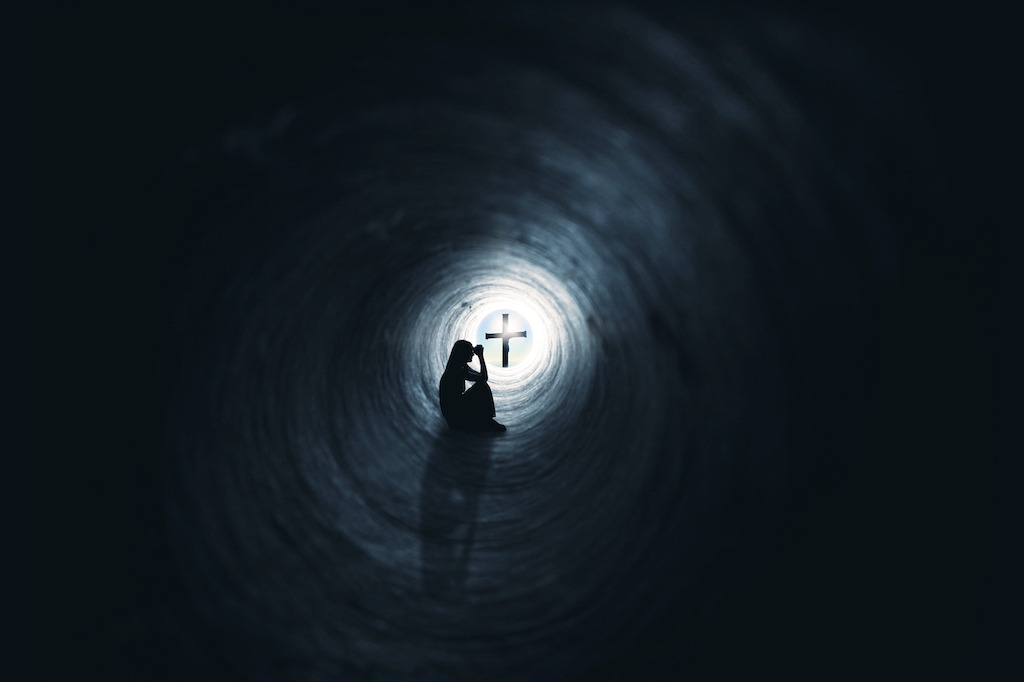We’ve spent a few days examining the three states of the Church: militant, suffering, triumphant. The Church Triumphant is not our triumph, a victory of our own doing. No, the Church Triumphant is the triumph of Christ over sin and death. The Church Triumphant is the eternal glory of God. The Church Triumphant is the eternal fellowship of those whom Christ has saved and who have given over their lives to Him. These souls become, in essence, citizens of Heaven.
A citizen of Heaven is a saint. Some of them have been given the title “Saint” by the Church, but others go unrecognized by the Church Militant. Peter Kreeft:
Saints are not freaks or exceptions. They are the standard operating model for human beings. In fact, in the biblical sense of the word, all believers are saints. “Sanctity” means holiness. All men, women and children, born or unborn, beautiful or ugly, straight or gay, are holy, for they bear the image of God.
Saints are not the opposite of sinners. There are no opposites of sinners in this world. There are only saved sinners and unsaved sinners. Thus holy does not mean “sinless” but “set-apart:” called out of the world to the destiny of eternal ecstasy with God.
You are called to be a saint, meant to be set apart and holy for God. You have a passport to Heaven, should you decide to use it. Yes: you. Your eternal soul, now embodied, is meant for a life before the throne of God, in His company and the company of all the angels and saints forever. That is the Church Triumphant.
Impossible, you may say. I am no saint. Saints are people like nuns who spend their whole lives praying the Rosary. (There are not any nuns who do this, by the way.) Okay then; a saint is a Jesus freak, talking about Him all the time to the point of annoying others. (Well, a saint may be annoying, but every saint was at some point a person who had to get up in the morning, make the coffee, go about his or her daily business, whether as a parent, a spouse, an accountant, a priest, a truck driver, a teacher. Nothing freakish about that.)
Yes. You are meant for sainthood. Your sainthood will lead you, should you put all your energy into sainthood, to the Church Triumphant. Your sainthood will not look like anyone else’s, because you are unlike anyone else. God created you in a unique manner, for a unique task. Yet ultimately, He created you to be a saint.
At Mass, just after the Eucharistic prayer, we pray the Sanctus:
Holy, Holy, Holy Lord God of hosts.Heaven and earth are full of your glory.Hosanna in the highest.Blessed is he who comes in the name of the Lord.Hosanna in the highest.
That is the hymn of Heaven. In Revelation 4, John gives an account of his vision of Heaven. Those before the throne of God sing this hymn. That means that, during the Mass, at that moment when we sing this hymn, we are joined with all the angels and saints. This is our destiny. This tiny little glimpse of Heaven that we have during the Mass is meant to be our home forever.
So many of us stumble about, searching for our heart’s deepest longing. Some look for it in sex or drugs or work. We search obsessively for it. We may not even know what we are looking for, but God made our hearts for Him and for Heaven. So, what is the “secret” of the Church Triumphant? Thankfully, it is no secret at all; again, Peter Kreeft:
The existence of heaven, the desire for heaven, the nature of heaven, and the relevance of heaven are all important questions. But there is only one question that’s absolutely essential, one question compared with which how we might save the world from a nuclear holocaust is trivial: “What must I do to be saved?” When I’m honest enough to look through the door of death, infinite joy or infinite joylessness loom up as my only two possible destinies. What decides for joy? What is heaven’s entrance ticket? What is the Way, the Truth and the Life?
I am horrified to report that I’ve asked this question of hundreds of Catholic college students, and far fewer than half have known the answer. This means that the Church’s religious education has been not a failure but an inexcusable disaster. Most reply either “God is good to everybody” or “I’m basically a good person.”
If anyone out there is unsure of the correct answer, then for the love of God get out your Bible and study for your finals! To save you time—since you may die while reaching for your Bible—I will quote God’s scandalously simple answer to the most important question in the world, how to get to heaven: “Believe in the Lord Jesus Christ and you will be saved” (Acts 16:31).
Lift your voice and sing, with all the angels and saints: Holy, Holy, Holy Lord God of Hosts. And then, set about today on the road to Heaven.


